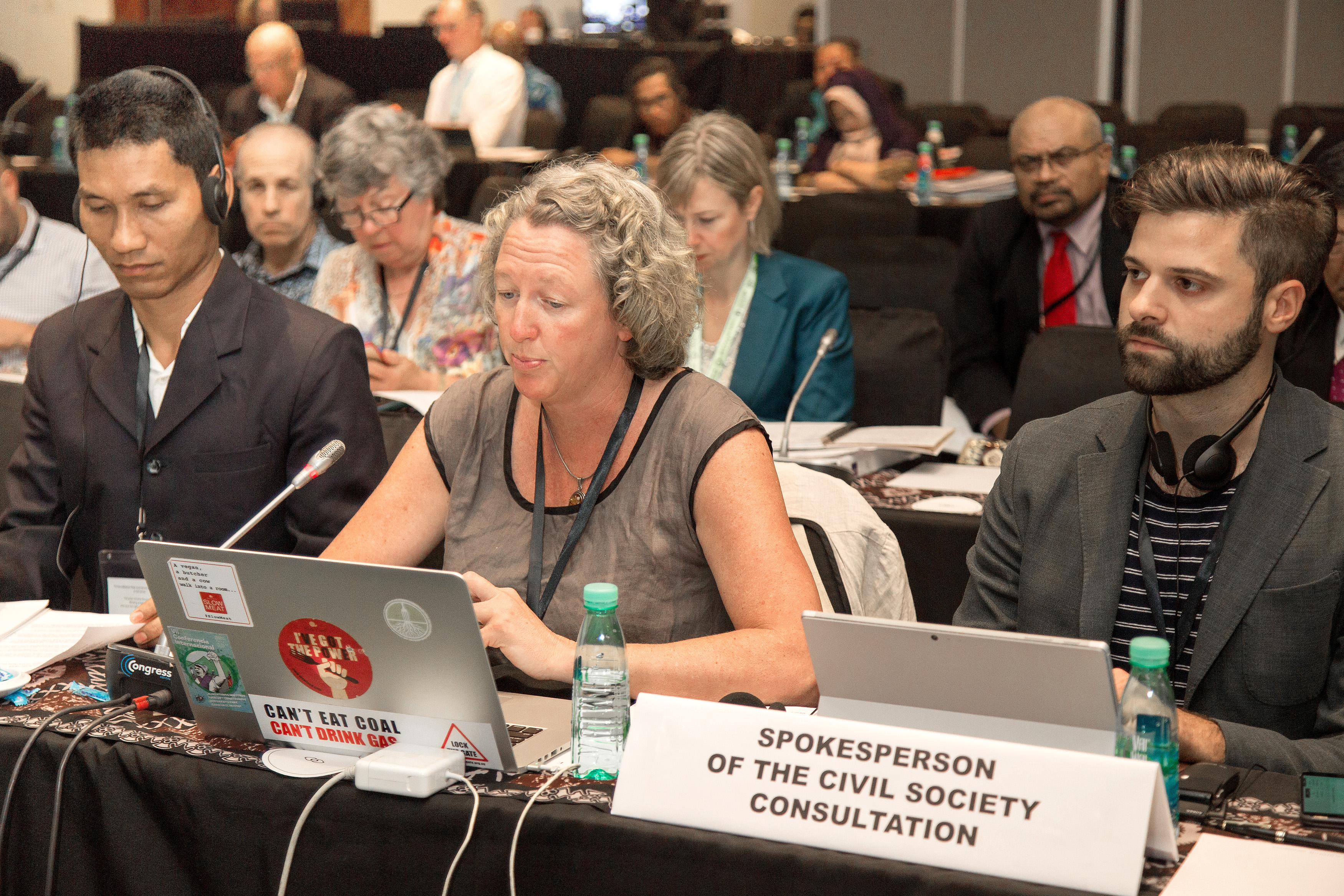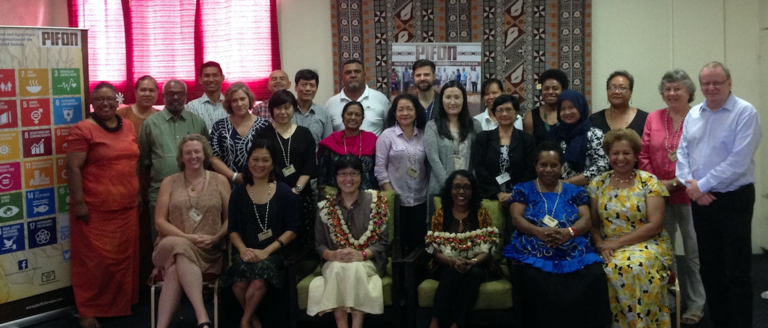By Kirk Barlow, from the Chinese CSA Network and Urgenci Asia.
As part of the biannual Civil Society consultation in Asia Pacific, Urgenci representatives and other Civil Society Organizations were warmly hosted by the Pacific Island Farmers Organization Network (PIFON) in Nadi, Fiji.

We together as part of a group of 32 participants from 25 organizations and movements and provided inputs for the UN’s FAO regional conference. Our inputs covered several areas highlighting the need to adopt a more integrated ecosystem approach linking forest, agriculture, coastal, marine and fresh water management. Specifically, following member state inputs, we provided interventions on:
-
State of Food & Agriculture in the Asia & Pacific Region – A grassroots perspective;
-
Climate Action for Agriculture – Strengthening the Engagement of Agriculture Sectors to Implement the Climate Change Elements of the 2030 Agenda in Asia and the Pacific;
-
Accelerating Action on Food Security and Nutrition in Pacific Small Island Developing States (SIDS);
-
Addressing Food Safety Challenges of the Asia-Pacific Region;
-
Zero Hunger (SDG 2, 1&3);
-
Imagining Future Healthy and Inclusive Food Systems in Asia and the Pacific.
Here is a quick outskirt delivered on the state of Food & Agriculture:
As you know, farmers and rural laborers make up most of the world’s hungry—but what perhaps you do not realise is that helping them produce more food will not necessarily make them less hungry. According to the groundbreaking new book Beginning to End Hunger, ‘if all the poor farmers of the world increased the amount they were producing in the near future, we would quickly see a “treadmill of productivity” […] where the price of what they were selling would decline, all else being equal.’
We called on FAO and member states to recognize that short value chains – direct farmer and fisher to consumer relationships – is fundamentally different. Reframing food safety from a systems perspective will show the benefits and inherent food safety features found in agroecology and direct producer-consumer relationships.


